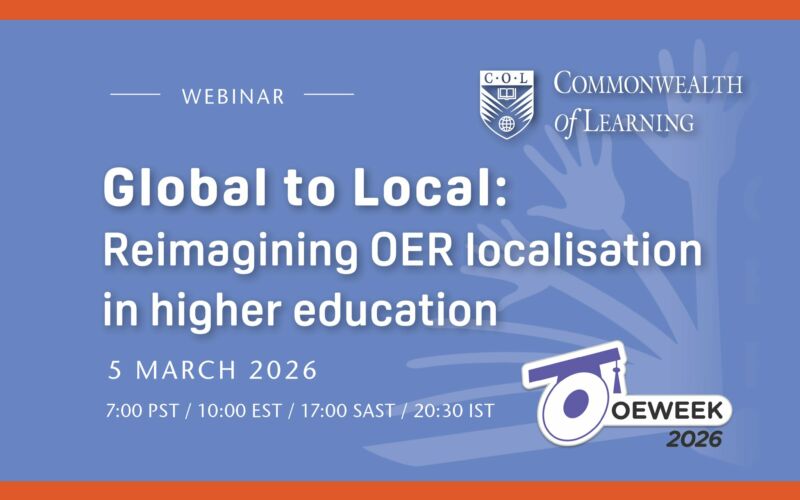Global to Local Webinar: Reimagining OER localisation in higher education
Join us on 5 March, in COL’s celebration of Open Education Week, for an online panel sharing fresh insights into Open Educational…
New report captures the changing landscape of Open and Distance Learning research in the Commonwealth
The Commonwealth of Learning (COL) has just published a new report titled…
Transforming employability outcomes and learner success through the EDGE Project
Career readiness is a central pillar of learner success. Beyond academic achievement, students must be equipped…
Beyond the Classroom: Frugal AI in TVET as a roadmap in skills training
By Robert Okinda (COL Adviser: Skills), with input from Ricky Cheng (COL…







